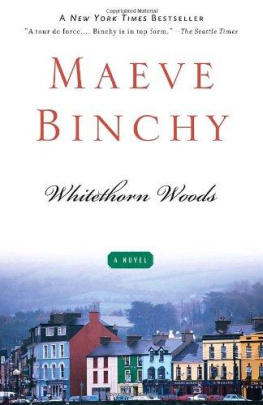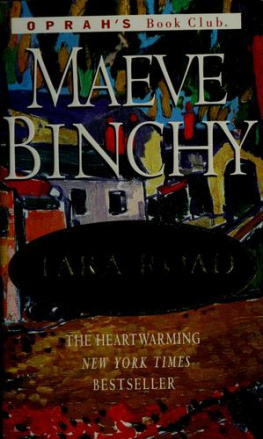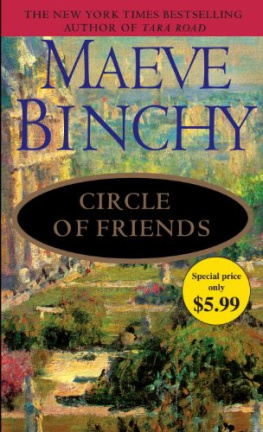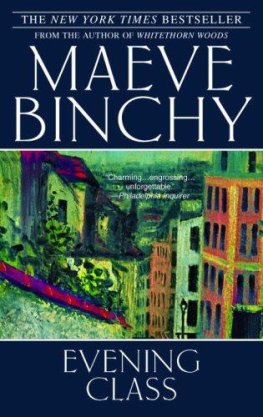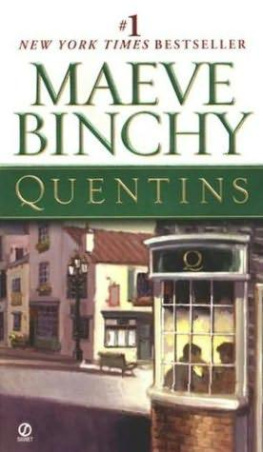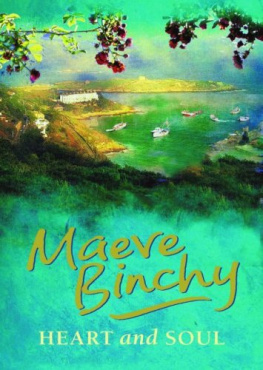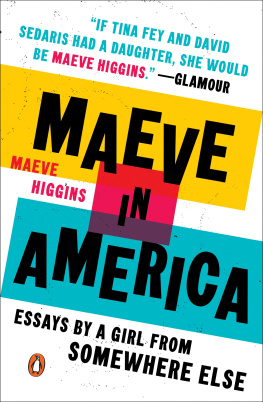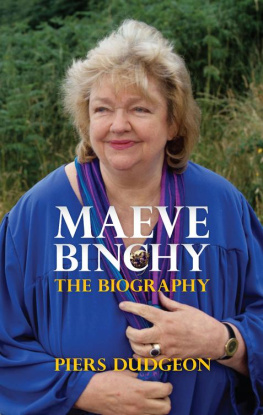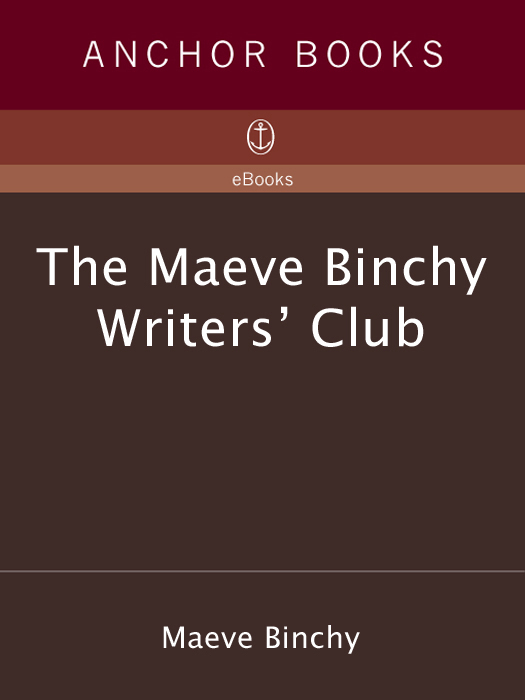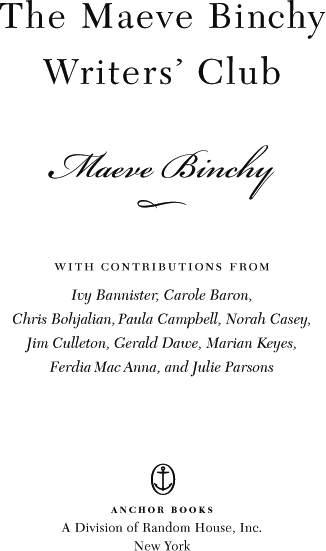Each week Maeve wrote the students a letter, containing tips and advice on the theme being discussed during the sessions. Then special guest speakers, including some of Irelands foremost authors, as well as representatives from publishing houses and writers agents, talked about specific areas of writing. Essentially the program was about the process of writing a book and the business of being a writer, rather than the craft of writing. Thus it allowed participants to transform an idea into a manuscript ready to be shown to a publisher.
This book comprises the original letters written by Maeve to the members of the Writers Club, along with contributions from some of the guest speakers on the program as well as new pieces for the American edition. It is interspersed with blank pages so that the reader can make his or her own notes, or even start writing his or her own short story, poem, or novel.
As Maeve says, Everyone is capable of telling a story. This book is the perfect place to start for any budding writer.
INTRODUCTION
This book is for you because you once said or even thought that you might like to be a writer. This is your special journal. Ive got one, too, and we must make them work for us. The whole point of this book is to remind you that that is what we do.
We write. We tell stories. We may create poems, do research into some special area, come up with thrillers, turn out a comedy. But we write. We dont just talk about it.
A little while back we held a course in Dublin where over two hundred people turned up every week. They heard from agents, publishers, stage, television, and radio producers; they listened to fellow writers and critics and, in the end, they sat down and wrote their own books. Most of them finished their books, and many of them will be published. What really helped the people attending the course was the discovery that they were not alone. They were not the only people sitting staring at a blank screen wondering if they were mad to try to do this. They all shared the huge self-doubt that writers know only too well: Wholl want to read my take on things? Hasnt it all been said and done already?
So we decided to make a writers journal, a book of advice but with a few blank pages, too. Those are your pages. This is what will make the book complete. You could also have your own separate notebook, so that you have plenty of space to write longer pieces.
Remember all those ideas or half ideas that flashed into your mind and just as suddenly flashed out again? Of course you do. Now they cant escape. Theres no need to wonder anymore if you wrote them down on the back of your checkbook, on the top of an evening newspaper, or in the margin of the telephone directory. They will be here in this book.
Suppose you hear a conversation with something marvelous in it, then I advise you to write it down in this journal. A hint is to write nice and small so that you wont use the book up with big, loping writing.
One of the first things Im going to write is a phrase I overheard as two people passed by my window the other day, talking about a friend of theirs.
Her feet arent any use to her Not as feet, that is.
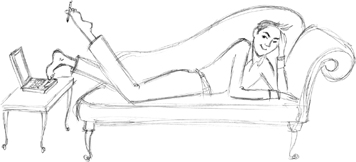
It makes you wonder what on earth they are useful as, and theres surely some story it can go into along the way.
If you listen well, you will have many more and probably better quotes for yourselves. You will look through them and realize that it would be positively criminal to waste them, and you will start writing straightaway.
Another thing that you might keep in the journal are details of competitions, prizes, or awards. Anything at all that would give you a deadline, a time frame, an urgency to get it finished rather than allowing yourself to drift on, year after year, saying youll do it someday.
You might also use this book as a place to keep lists of contacts. Suppose someone tells you about a marvelous editor at some publisher, a friendly literary agent, a magazine dying for new writers. Where better to file this information than in your writers journal?
If youve bought this book, or someone has given it to you as a gift, then that means you must be interested in writing. So lets not have that interest remain a pious wish. This is a nice little book. We mustnt waste it. It is not for shopping lists or trying out anagrams for crosswords. The commitment has been made: we now have a writers journal in our possession.
Yours will be different from mine, but they will all be helpful if they are opened, written in, read, and heeded.
There are some pieces of my own deeply wise advice scattered throughout. You may already know that its much easier to tell other people what to do than to do it yourself. So I can look back on my days as a schoolteacher and speak with a lofty sense of authority. The most important thing to realize is that everyone is capable of telling a story. It doesnt matter where we were born or how we grew up.
I was the first writer in my family; all my relations were grocers or lawyers. They read books by other people, but they thought it was a bit fancy to go and write them. Also, I was from a quiet suburb in Ireland, which is a small country. Who would want to read my stories? But the imagination has no limits. Wherever you are is interesting if you know where to look. Putting your name at the front of this book is your promise that you are going to take this book, and yourself, seriously. Well, seriously enough to do something about this sneaking belief that you can tell a story as well as the next person.
Study all the advice and suggestions, certainly, but dont forget your own input. It could even turn out that the blank pages, the ones that you write on, might become the best self-help book ever written. After all, this book will be nothing until you fill it with your thoughts, ideas, hopes, and plans.


